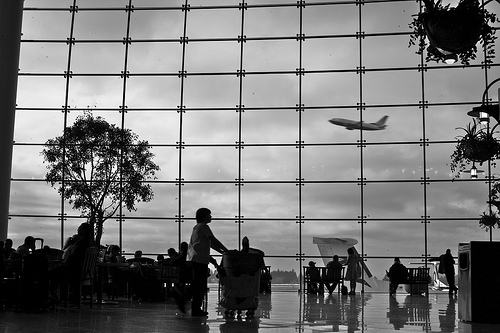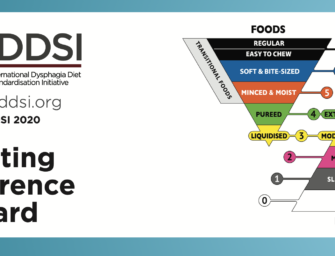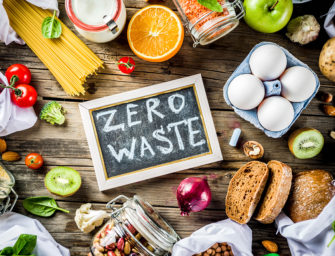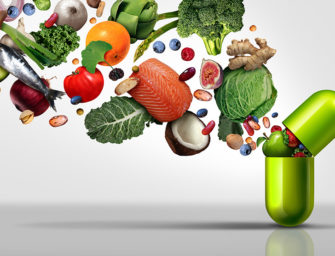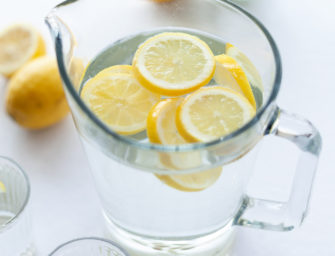Safe and Healthy Travels!
Work may sometimes call for travelling and it may be difficult to stay healthy while you’re away with a busy schedule. Many of the meals you eat will be in restaurants and prepackaged convenience foods, which can be very different from your lifestyle at home. Restaurant foods are designed to taste great but may not be the healthiest option. Prepackaged convenience foods are often processed foods that are high in sodium and calories. Here, I want to provide some healthy tips which can be used during business trips and when dining out.
Bring healthy snacks with you (hotel room, office, plane, car, etc.)
Whether you’re travelling to your destination or at a client site, keep some healthy snacks on hand for when you feel hungry. These snacks will tide you over until your next meal, deter you from overeating at your next meal and stop you from buying an unhealthy snack in the moment. Overall, it can help you save time, money and calories. Some examples of healthy snacks include: fruit (fresh or dried), unsalted nuts, fresh vegetable sticks (yogurt, hummus or peanut butter dip), yogurt or whole grain crackers and cheese. If you’re travelling far away, consider picking up some snacks once you’ve reached your destination at a local grocery store.
Make healthy choices at restaurants
The majority of your meals will be at restaurants and therefore it is important to keep in mind the food may taste great but might not be the healthiest. Look for foods made with cooking methods that use less oil such as: steaming, grilling, and baking. Whenever you order something with sauce or dressing, ask for it on the side and you can determine how much of it you want to use (don’t just pour the whole thing on!). Portion sizes are usually much larger than you would normally consume, especially if you opt for appetizers and desserts. Ask if the restaurant has smaller portions or for a take-out container where you can pack half of your meal for lunch the next day. Here are two links that provide some additional tips when eating out.
http://www.choosemyplate.gov/healthy-eating-tips/tips-for-eating-out.html
Choose high protein, high fibre meals to keep you full and fueled on busy days
Protein and fibre take more time to digest and therefore will be more filling. This is great to keep in mind if you’re busy or trying to control your weight. Some examples of foods with high protein and fibre include: whole grain crackers and peanut butter, carrots and hummus, or eggs and whole wheat toast.
Maintain a balanced diet by including multiple food groups at each meal and snack
Canada’s Food Guide includes four food groups including: vegetables and fruit, grain products, milk and alternatives, and meat and alternatives. Meals and snacks should include food from multiple food groups to ensure that you can obtain a variety of nutrients. You can take a look at the attached link to Canada’s Food Guide to see how many servings you need in a day and what counts as a serving. My Plate (USA) includes great tips on how to moderate consumption and make every meal healthy by including variety of food groups.
http://www.choosemyplate.gov/food-groups/downloads/TenTips/DGTipsheet7BuildAHealthyMeal.pdf
Look for a hotel that has a fridge to keep fresh produce or kitchenette where you could cook a simple meal
Many hotels come with mini-fridges filled with beverages and snacks. These fridges are a great resource for keeping perishable items such as fresh produce or dairy products. These can make great snacks or breakfasts that are quick and healthy. For example, you could buy some yogurt, fruit, and granola and make parfaits for breakfast. If you’re lucky enough to have a kitchenette in your hotel room, you could make a simple sandwich, pasta dish or even a full meal if you’re ambitious. Cooking yourself will cut down on costs and unhealthy extras (fat, sugar, salt) that are often found in restaurant meals.
Stay hydrated with water
My last piece of advice is to stay hydrated. Water is so important to our bodies, yet we often forget about it. People need to drink approximately 2 L (8 cups) a day, which you can get from beverages and “wet” foods (soup, fresh produce). Turning to these foods when you’re actually dehydrated can add calories and is less efficient at hydrating. Water can hydrate you without any calories and is easily accessible from the tap. Bring a reuseable water bottle with you and fill up wherever you go.
Photo Credit: aturkus via Compfight cc

